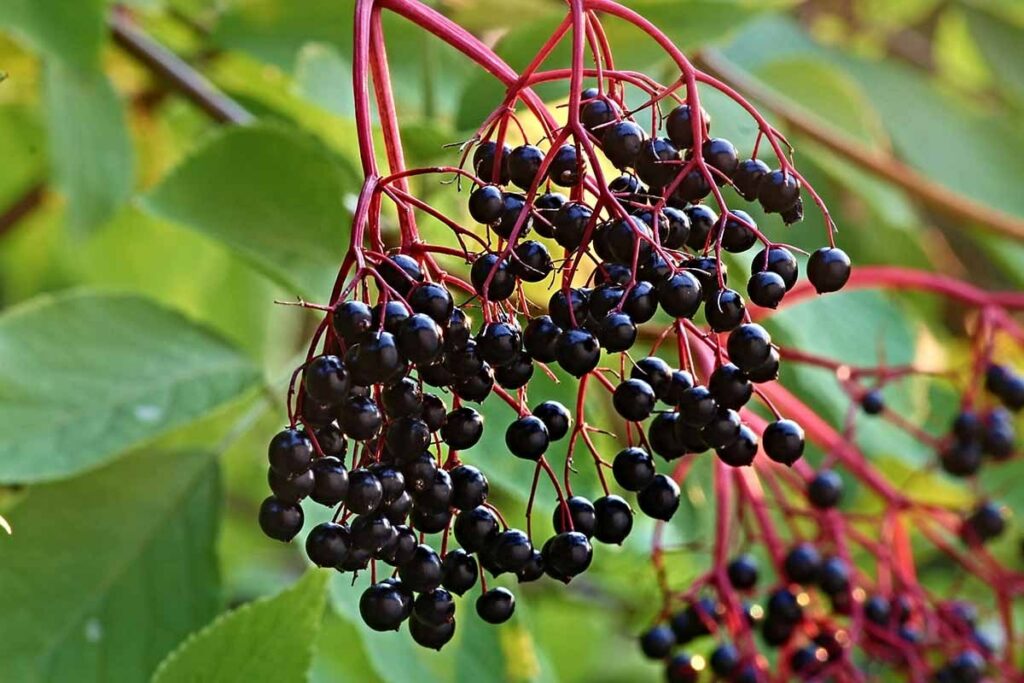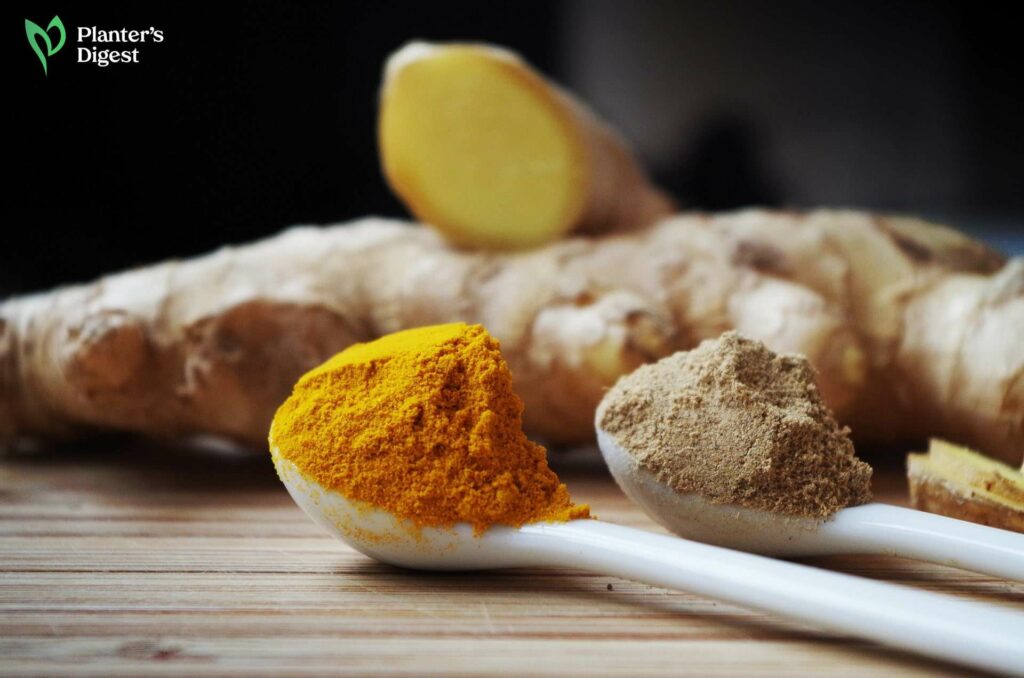
If turmeric were a person, it’s definitely an overachiever. Throughout its existence, turmeric has become a superfood, the ultimate spice, and a go-to herbal medicine.
But turmeric’s benefits do not end there – it also helps improve garden plant growth! Let’s explore the different ways turmeric benefits plants.
What is turmeric?
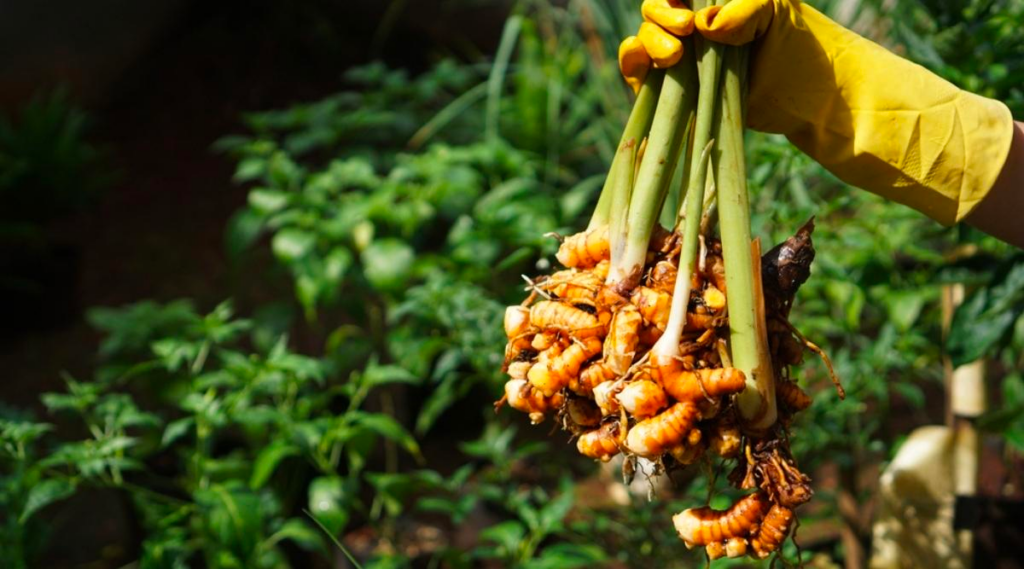
Turmeric is a perennial herb widely cultivated in Southeast Asia for its rhizomes, which are used to make a curry spice, create a yellow dye, or utilized for medicinal purposes.
Here is a summary of the characteristics of a turmeric plant:
| Scientific Name | Curcuma longa |
| Common Name | Turmeric |
| Family | Zingiberaceae |
| Country of Origin | India |
| Life Cycle | Perennial |
| Light Requirements | Full SunPartial Shade |
| Maintenance | Medium |
| Soil | High Organic MatterGood DrainageMoist |
| Watering | Once a week |
| Edibility | Rhizomes as a spice or natural herb medicine |
The turmeric plant was first discovered in Southwest India more than 2,000 years ago. Besides India, turmeric has been naturalized in Asian countries like the Philippines, Indonesia, Malaysia, Cambodia, China, and Thailand.
You can easily grow it by placing a small piece of the plant’s root in the soil, and it will germinate on its own.
The turmeric rhizomes can be harvested 6 to 9 months after planting, usually during fall. They are thick and branched and can be boiled, dried, ground, or peeled to produce curry powder or used for medicinal purposes.
Turmeric contains an active chemical called “curcumin,” which causes its bright yellow extract, commonly used as a dye or food coloring agent. This chemical is also an antioxidant, anti-inflammatory, anti-microbial, and immune-boosting agent.
What are the benefits of using turmeric water on plants?

Turmeric benefits plants by acting as a natural pesticide, wound healer, natural fungicide, rooting agent, and powdery mildew remover.
Learn more about these impressive roles below!
1. Turmeric acts as a natural pesticide.

Turmeric can be used as a natural pesticide to protect your plants. It is a great natural repellent for insects and bugs.
For instance, ants are repulsive to turmeric’s pungent odor, so they can be used to solve your ant infestation problem.
Turmeric can also fight off mites, mealy bugs, beetles, cutworm larvae, and cabbage looper larvae.
Using Turmeric as a Natural Pesticide
| Difficulty | Easy ●○○○○ |
| Duration | 15 to 30 minutes |
| Things You Need | Turmeric powderWaterSpray bottle |
| How To Do Option 1: Add and mix one teaspoon of turmeric powder for every ½ cup of warm water. Spray the solution directly onto the plants to kill the garden pests. Option 2: Sprinkle turmeric powder in the soil. As you water the soil, turmeric gets absorbed in the plant’s roots. |
2. Turmeric can heal plant wounds.
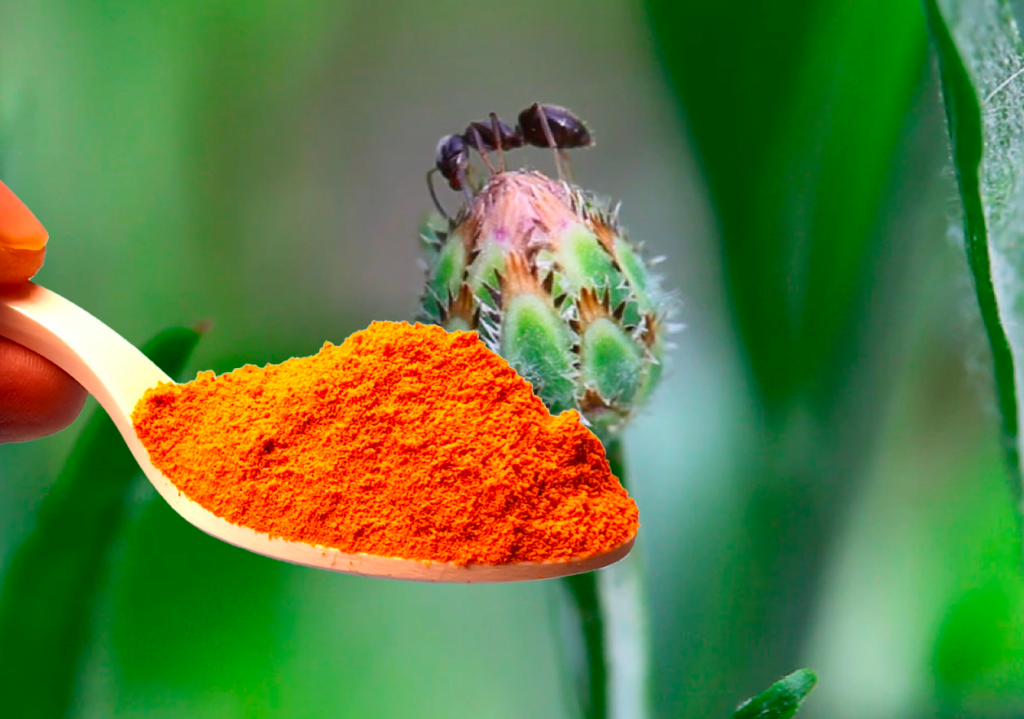
When applied to the plant wound, turmeric’s properties create a protective barrier against harmful viruses and bacteria.
Turmeric can heal plant wounds caused by insect attacks, broken branches, or animal, pruning, or grafting damage.
Using Turmeric as a Plant Wound Healer
| Difficulty | Easy ●○○○○ |
| Duration | 30 minutes to 1 hour |
| Things You Need | Turmeric powderWaterCloth |
How To Do Mix turmeric powder with water to create a thick paste.Apply the turmeric paste on the plant’s open wound or injured portion. Wrap the injured portion with cloth, making police for the plant. |
3. Turmeric acts as a natural fungicide.

Turmeric is an effective natural fungicide against plant diseases. It contains antifungal and antibacterial properties that help fight harmful fungal pathogens without harming the environment.
Curcumin in this plant stops and controls fungal infections like brown stem rot, leaf blight, early blight, and downy mildew.
Using Turmeric as a Natural Fungicide
| Difficulty | Easy ●○○○○ |
| Duration | 15 to 30 minutes |
| Things You Need | Turmeric powderWaterSprayer |
How To Do Mix 20 grams of turmeric powder in 1 liter of water. Or, mix 80 grams of turmeric powder with 1 gallon of water if the plant is bigger.Stir the solution until the powder completely dissolves. Transfer the solution to a sprayer. Spray the solution on the plant leaves, preferably early in the morning or evening. Repeat this method once every two weeks. |
4. Turmeric acts as a rooting agent.
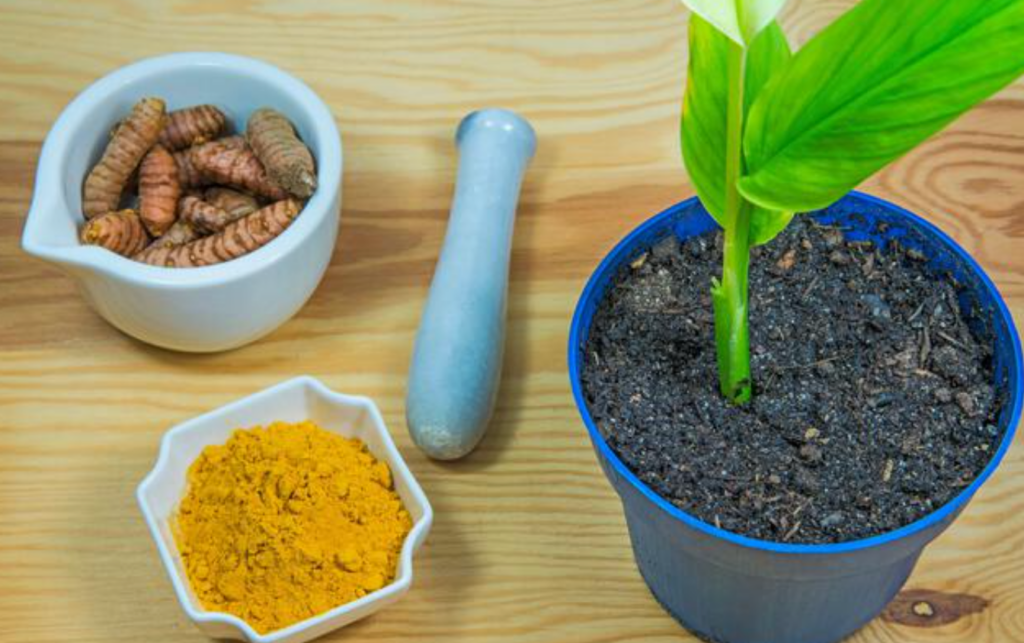
Turmeric can also be used to help boost the development of a plant’s roots.
Using Turmeric as a Natural Rooting Agent
| Difficulty | Easy ●○○○○ |
| Duration | 15 to 30 minutes |
| Things You Need | Turmeric powderPotting soil |
How To Do Mix one tablespoon of turmeric powder into the potting soil. Allow the plant to grow in this soil mixture. |
5. Turmeric helps remove powdery mildew.

Turmeric fights the fungi that cause powdery mildew or grayish-white patches on the surface of the leaves, buds, fruits, and flowers of the plant.
Using Turmeric as a Powdery Mildew Remover
| Difficulty | Easy ●○○○○ |
| Duration | 15 to 30 minutes |
| Things You Need | Turmeric powderWood ash |
How To Do Mix one part turmeric powder and two parts wood ash. Sprinkle the powder mixture on the infected plants early in the morning. |
FAQs on Using Turmeric Water on Plants
Turmeric water is an excellent natural pesticide and fungicide for plants. Turmeric’s anti-inflammatory and anti-bacterial properties create a protective barrier against harmful pests and plant diseases.
In a 1:10 ratio, dissolve turmeric powder in water and spray it directly on your plants. This effectively keeps bugs, insects, and other pests away from garden plants.
When mixed in the soil, turmeric helps the new plant develop roots faster because of its microbial and anti-fungal properties.
Turmeric is a natural and effective pesticide against ant infestations. Ants are repulsive to the smell of turmeric, making them an effective ant-repeller.




